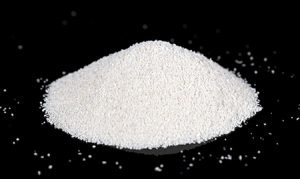Home / News & Blog / Abrasive Blog / Comparison of White Fused Aluminum Oxide and Silicon Carbide Abrasives: Key Differences and Applications
When it comes to choosing the right abrasive grains for various industrial applications, understanding the characteristics of different materials is crucial. Among the most commonly used abrasive grains are White Fused Aluminum Oxide (WFA) and Silicon Carbide (SiC). While both are widely used in grinding, polishing, and surface preparation, each has its own distinct properties that make it more suitable for specific applications.
In this article, we’ll compare these two abrasive grain types and explore their key differences, uses, and which one is ideal for different industrial processes.
![]()
White Fused Aluminum Oxide (WFA) is produced by fusing high-quality alumina in an electric arc furnace at temperatures over 2,000°C. The result is a hard, durable, and sharp abrasive grain with a white color. WFA has excellent properties for use in various abrasive grain tools and applications due to its hardness and consistency.

Key Properties of White Fused Aluminum Oxide:
Hardness: 9 on the Mohs scale (extremely hard and durable)
Color: White (pure alumina)
Grain Shape: Angular, sharp, and jagged edges
Applications: Metal grinding, polishing, sandblasting, and precision grinding
Silicon Carbide (SiC) is made by fusing silica sand and carbon in an electric furnace at extremely high temperatures (over 2,400°C). This produces a hard, brittle, and sharp abrasive grain material. Silicon carbide is typically green or black in color, depending on the production process. It’s known for its hardness and abrasive power, particularly for non-ferrous materials.
![]()
![]()
Key Properties of Silicon Carbide:
Hardness: 9–9.5 on the Mohs scale (slightly harder than aluminum oxide)
Color: Green (high-quality SiC), Black (lower-quality SiC)
Grain Shape: Angular, sharp, and brittle
Applications: Glass grinding, ceramic polishing, stone and concrete surface preparation, and cutting softer metals.
| Property | White Fused Aluminum Oxide (WFA) |
Silicon Carbide (SiC) |
| Hardness | 9 on the Mohs scale | 9–9.5 on the Mohs scale |
| Toughness | Tough and durable, ideal for metalworking | Brittle and sharp, better for softer materials |
| Abrasive Power | Excellent for precision grinding and finishing | Excellent for cutting and fine finishing |
| Applications | Metal, steel, and stainless steel grinding, polishing, and sandblasting | Glass, ceramics, stone, concrete, and soft metals |
| Color | White | Green (high-quality), Black (lower-quality) |
| Cost | Generally more affordable | Typically more expensive, especially for high-quality green SiC |
| Use in Wet or Dry Operations | Suitable for both wet and dry applications | More effective in dry applications, but also works wet |
| Wear Resistance | Excellent resistance to wear and thermal shock | Less resistant to wear compared to WFA |
White Fused Aluminum Oxide abrasive grains are widely used in applications that require precise finishing and high-quality results. Its high hardness and toughness make it ideal for metalworking and abrasive grain tools that need to handle heavy-duty grinding. Here are some key uses for WFA:
Precision Grinding: WFA is used in surface grinding, tool grinding, and polishing where smooth finishes and high levels of accuracy are critical.
Metalworking: It’s commonly used for grinding steel, stainless steel, and other ferrous metals due to its toughness and ability to maintain its sharpness over time.
Abrasive Blasting: WFA is used in sandblasting applications for cleaning and preparing metal surfaces.
Silicon Carbide abrasive grains are an excellent choice for materials that are softer than metals, such as ceramics, glass, stone, and concrete. Its brittleness allows it to break apart more easily, exposing sharp edges that are effective at cutting and smoothing surfaces. Here are some applications where SiC shines:
Glass and Ceramic Polishing: SiC is ideal for fine grinding and polishing of glass and ceramics because it provides high cutting power with minimal risk of damage to the material.
Stone and Concrete Surface Preparation: SiC works well in applications such as stone cutting, concrete grinding, and surface cleaning, especially for harder materials.
Cutting Soft Metals: SiC can be used for light-duty applications like cutting soft metals such as aluminum, copper, and brass.
Sandblasting: SiC is commonly used in sandblasting to clean surfaces of materials like stone and steel.
Material Type: If you’re working with ferrous metals or stainless steel, White Fused Aluminum Oxide abrasive grains are often the better choice due to their hardness and toughness. If you are processing softer materials like glass, ceramics, or stone, then Silicon Carbide abrasive grains may be a more effective choice due to their sharpness and ability to break down quickly.
Cost Considerations: White Fused Aluminum Oxide is typically more affordable than Silicon Carbide, making it a good choice for operations with tighter budgets, especially for metalworking tasks.
Application Environment: For applications requiring sharp cutting edges and abrasive power (such as cutting stone or glass polishing), Silicon Carbide abrasive grains would be the go-to choice. However, if durability and long-lasting performance are needed for tasks like metal finishing and surface grinding, White Fused Aluminum Oxide abrasive grains are a better option.
Both White Fused Aluminum Oxide and Silicon Carbide abrasive grains are valuable materials, each with unique characteristics that make them suitable for specific applications. The choice between them comes down to the material being worked on, the nature of the task, and the performance required. By understanding their differences, manufacturers can make an informed decision to optimize both their performance and cost-effectiveness.
Whether you’re working in metal, stone, ceramics, or glass, selecting the right abrasive grain is essential for achieving the best results. Consider the hardness, toughness, and abrasive power of each material to ensure you choose the best one for your specific needs.